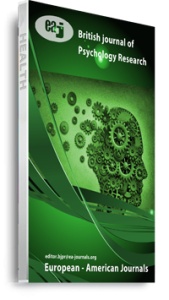This study aims to evaluate the level of emotional intelligence among high school teachers in the city of Gjirokastër and to examine its role in improving professional effectiveness and interpersonal relationships within the educational environment. Relying on Daniel Goleman’s theoretical model, the research focuses on the five main components of emotional intelligence: self-awareness, emotion management, self-motivation, empathy, and social skills. The study uses a quantitative approach with a standardized self-assessment instrument (EI Questionnaire), administered to a sample of 40 teachers from three public high schools in Gjirokastër. The data were analyzed through descriptive statistics, which show overall satisfactory levels of emotional intelligence. Self-awareness appears as the most developed component, while emotion management represents the field with the greatest challenges. The findings support existing literature that emphasizes the importance of emotional competencies in coping with stress and in building positive relationships in the classroom.In conclusion, the study recommends the inclusion of training on emotional intelligence in professional development programs for teachers, aiming to improve the quality of teaching and well-being in school environments. Further research may be extended to different geographical contexts and use combined methodological approaches to deepen the understanding of this phenomenon.
Keywords: Emotional Intelligence, Teaching, emotion management, high school teachers, interpersonal relationships.

